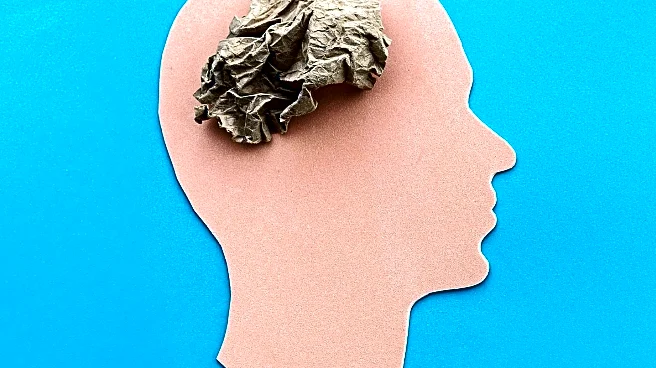What's Happening?
Medical professionals are addressing common misconceptions about mental health treatment, emphasizing the importance of combining therapy with medication. According to insights shared by doctors and nurses, many patients believe that medication alone is sufficient for treating mental illnesses, neglecting the role of therapy. The professionals argue that while medication can aid in managing symptoms, therapy is crucial for long-term recovery and mental health maintenance. They liken the process to physical rehabilitation, where medication is akin to a cast for a broken leg, and therapy is necessary for regaining full function. Additionally, they stress that recovery from severe mental illness is a gradual process, and expectations should be realistic regarding the lifestyle changes post-recovery.
Why It's Important?
This clarification from medical professionals is significant as it addresses widespread misconceptions that can hinder effective mental health treatment. By promoting a holistic approach that includes both medication and therapy, healthcare providers aim to improve patient outcomes and reduce the stigma associated with mental health care. This approach can lead to more informed patients who actively participate in their recovery process, potentially reducing the burden on healthcare systems by preventing relapses and promoting sustainable recovery. The emphasis on realistic recovery expectations also helps patients and their families navigate the complexities of living with mental illness, fostering a more supportive environment.










